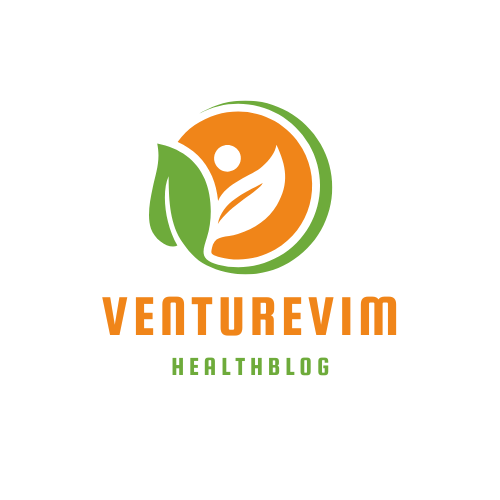Vitamin E Health Benefits and Best Vitamin E Foods to Eat
Vitamin E is a fat-soluble antioxidant that plays an important role in protecting cells from damage caused by free radicals. There are several vitamin E health benefits and are essential for various body functions. It supports immune function, promotes skin health by fighting aging and UV damage, and contributes to heart health by preventing oxidative stress and supporting blood vessel function. Here are some of the main vitamin E health benefits:
Skin Health:
Vitamin E is well-known for its positive effects on skin health, making it a popular ingredient in many skincare products. Here are more details about how vitamin E benefits the skin:
1. Antioxidant Protection:
As an antioxidant, vitamin E helps neutralize free radicals, which are molecules that can damage skin cells and contribute to signs of aging. By protecting the skin from oxidative stress, vitamin E helps maintain a youthful appearance and can reduce the appearance of wrinkles and fine lines.
2. UV Protection:
Vitamin E has been suggested to provide some level of protection against the harmful effects of ultraviolet (UV) rays from the sun. While it’s not a substitute for sunscreen, using vitamin E in your skincare routine may offer additional support in shielding the skin from UV damage.
3. Moisturization:
Vitamin E has moisturizing properties that can help prevent dry and flaky skin. It supports the skin and its natural protective function, helping to lock in moisture and maintain skin moisture. It is especially useful for people with dry or sensitive skin.
4. Wound Healing:
Vitamin E plays a role in promoting wound healing and reducing inflammation. It can help reduce scarring and support the skin and healing of various injuries, including cuts and burns.
5. Reduction of Inflammation:
The anti-inflammatory properties of vitamin E make it valuable for individuals with inflammatory skin conditions, such as eczema and psoriasis. It can help soothe irritated skin and relieve symptoms related to these conditions.
Eye Health:
Vitamin E promotes eye health by promoting the prevention of certain age-related eye diseases. Here’s more information about how vitamin E is beneficial for the eyes:
1. Antioxidant Protection:
Like other tissues in the body, the eyes are susceptible to damage from free radicals. Vitamin E, as an antioxidant, helps protect the cells in the eyes from oxidative stress. This protection is essential to maintain the health of the eye and delicate structures, including the lens and retina.
2. Reduced Risk of Age-Related Macular Degeneration (AMD):
Age-related macular degeneration is a leading cause of vision loss in older adults. Some research suggests that diets rich in antioxidants, including vitamin E, may help reduce the risk of developing AMD. It is thought that the antioxidant properties of vitamin E neutralize the oxidative damage that contributes to the progression of this condition.
3. Cataract Prevention:
Cataracts involve the clouding of the eye’s lens, leading to blurred vision. Vitamin E, with its antioxidant properties, may help prevent or slow the development of cataracts by protecting the proteins in the lens from oxidative damage. During the study, maintaining adequate levels of vitamin E through a balanced diet may contribute to overall eye health.
4. Protection Against UV Damage:
The eyes are exposed to ultraviolet (UV) radiation from sunlight, which can contribute to eye damage over time. Vitamin E, along with other antioxidants, may offer some protection against UV damage. While not a substitute for sunglasses or other protective measures, including vitamin E in your diet may offer additional support against UV-related stress on the eyes.
5. Combating Dry Eyes:
Vitamin E’s moisturizing properties can be beneficial for individuals experiencing dry eyes. It helps maintain the integrity of the tear film, reducing symptoms of dryness, irritation, and discomfort.
Heart Health:
Vitamin E promotes heart health in many ways, primarily through its antioxidant properties and potential to support cardiovascular function. Here’s more information on how vitamin E benefits heart health:
1. Antioxidant Protection:
Vitamin E is a potent antioxidant that helps protect cells, including those in the cardiovascular system, from oxidative stress. Oxidative stress can contribute to the development and progression of cardiovascular disease by damaging blood vessels and promoting inflammation.
2. Reduced Oxidation of LDL Cholesterol:
Low-density lipoprotein (LDL) cholesterol is often referred to as “bad” cholesterol because, when oxidized, it can contribute to the formation of plaques in the arteries. Vitamin E helps prevent the oxidation of LDL cholesterol, reducing the risk of atherosclerosis (hardening and narrowing of the arteries) and promoting overall heart health.
3. Anti-Inflammatory Effects:
Chronic inflammation is associated with an increased risk of heart disease. Vitamin E has anti-inflammatory properties that can help shrink blood vessels, which can lower your risk of cardiovascular disease.
4. Improved Endothelial Function:
The endothelium is the inner lining of blood vessels. Vitamin E is thought to support endothelial function, which helps maintain blood vessel flexibility and dilation. It is important to regulate blood pressure and ensure proper circulation through the cardiovascular system.
5. Blood Clot Prevention:
Vitamin E may help prevent the formation of blood clots by promoting healthy blood flow. Blood clots can lead to diseases such as heart attack and stroke, so maintaining optimal circulation is essential for heart health.
Antioxidant Protection:
Vitamin E offers essential antioxidant protection, safeguarding cells from the harmful effects of oxidative stress. As an effective antioxidant, it neutralizes free radicals and unstable molecules that can damage DNA, proteins, and lipids. To reduce oxidative damage, vitamin E helps prevent chronic diseases, supports skin health, and promotes the well-being of the heart and blood vessels. A diet rich in sources of vitamin E, such as nuts, seeds, and green leafy vegetables, promotes overall health by strengthening the body’s natural defense mechanisms.
Immune System Support:
Vitamin E plays an important role in supporting the immune system by improving the body’s defense mechanisms against infections. As an antioxidant, it protects immune cells against oxidative stress and helps them function optimally. Adequate intake of vitamin E promotes a strong immune response, which is essential for maintaining overall health and resistance to disease.
Now, let’s explore some foods that are rich in vitamin E:
- Nuts and Seeds: Almonds, sunflower seeds, hazelnuts, and pine nuts are excellent sources of vitamin E.
- Vegetable Oils: Sunflower oil, wheat germ oil, and safflower oil are high in vitamin E.
- Green Leafy Vegetables: Spinach, Swiss chard, kale, and broccoli are good sources of vitamin E.
- Fruits: Kiwi, mango, and avocado contain reasonable amounts of vitamin E.
- Fortified Foods: Some cereals, margarine, and other processed foods are fortified with vitamin E.
- Fish: Salmon and trout, as well as other fatty fish, contain vitamin E.
It is important to note that a balanced diet usually provides enough vitamin E for most people. However, if you have specific health concerns or dietary restrictions, you may want to consider consulting a doctor or registered dietitian to ensure that your nutritional needs are met. In addition, it is necessary to avoid excessive supplementation without medical guidance, as high doses of vitamin E can have adverse effects.




